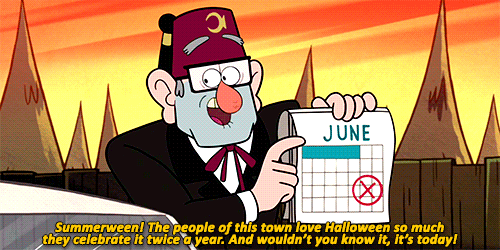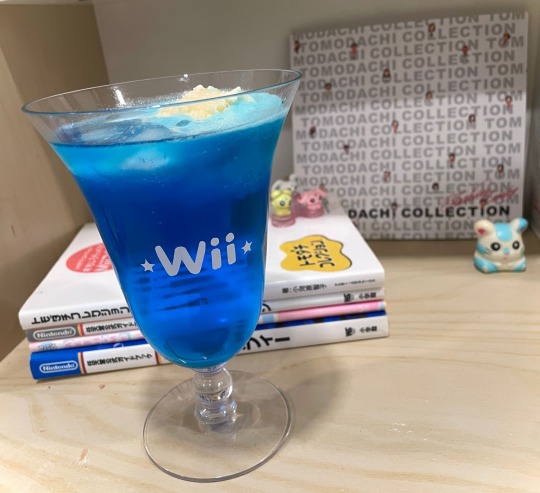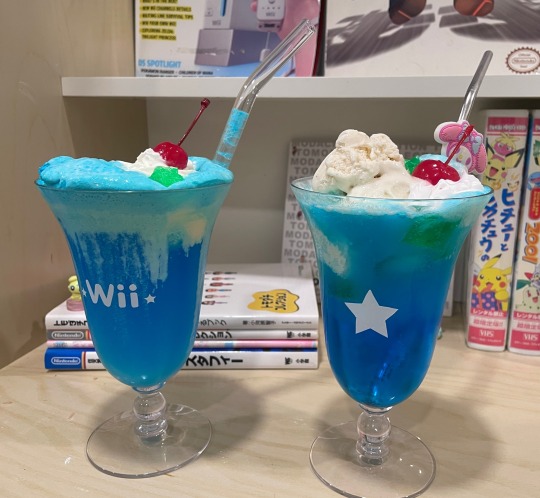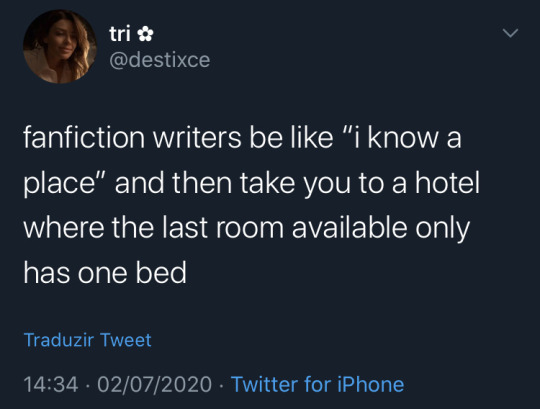she/her // MASSIVE Kay Faraday kin // love ace attorney, spy x family, owl house, GHOST TRICK!!
Last active 60 minutes ago
Don't wanna be here? Send us removal request.
Text
You already KNOW what time it is


🎃🍉🎃🍬🎃 Happy Summerween! 🎃🍉🎃🍬🎃
77K notes
·
View notes
Text
Zoom In, Don’t Glaze Over: How to Describe Appearance Without Losing the Plot
You’ve met her before. The girl with “flowing ebony hair,” “emerald eyes,” and “lips like rose petals.” Or him, with “chiseled jawlines,” “stormy gray eyes,” and “shoulders like a Greek statue.”
We don’t know them.
We’ve just met their tropes.
Describing physical appearance is one of the trickiest — and most overdone — parts of character writing. It’s tempting to reach for shorthand: hair color, eye color, maybe a quick body scan. But if we want a reader to see someone — to feel the charge in the air when they enter a room — we need to stop writing mannequins and start writing people.
So let’s get granular. Here’s how to write physical appearance in a way that’s textured, meaningful, and deeply character-driven.
1. Hair: It’s About Story, Texture, and Care
Hair says a lot — not just about genetics, but about choices. Does your character tame it? Let it run wild? Is it dyed, greying, braided, buzzed, or piled on top of her head in a hurry?
Good hair description considers:
Texture (fine, coiled, wiry, limp, soft)
Context (windblown, sweat-damp, scorched by bleach)
Emotion (does she twist it when nervous? Is he ashamed of losing it?)
Flat: “Her long brown hair framed her face.”
Better: “Her ponytail was too tight, the kind that whispered of control issues and caffeine-fueled 4 a.m. library shifts.”
You don’t need to romanticise it. You need to make it feel real.
2. Eyes: Less Color, More Connection
We get it: her eyes are violet. Cool. But that doesn’t tell us much.
Instead of focusing solely on eye color, think about:
What the eyes do (do they dart, linger, harden?)
What others feel under them (seen, judged, safe?)
The surrounding features (dark circles, crow’s feet, smudged mascara)
Flat: “His piercing blue eyes locked on hers.”
Better: “His gaze was the kind that looked through you — like it had already weighed your worth and moved on.”
You’re not describing a passport photo. You’re describing what it feels like to be seen by them.
3. Facial Features: Use Contrast and Texture
Faces are not symmetrical ovals with random features. They’re full of tension, softness, age, emotion, and life.
Things to look for:
Asymmetry and character (a crooked nose, a scar)
Expression patterns (smiling without the eyes, habitual frowns)
Evidence of lifestyle (laugh lines, sun spots, stress acne)
Flat: “She had a delicate face.”
Better: “There was something unfinished about her face — as if her cheekbones hadn’t quite agreed on where to settle, and her mouth always seemed on the verge of disagreement.”
Let the face be a map of experience.
4. Bodies: Movement > Measurement
Forget dress sizes and six packs. Think about how bodies occupy space. How do they move? What are they hiding or showing? How do they wear their clothes — or how do the clothes wear them?
Ask:
What do others notice first? (a presence, a posture, a sound?)
How does their body express emotion? (do they go rigid, fold inwards, puff up?)
Flat: “He was tall and muscular.”
Better: “He had the kind of height that made ceilings nervous — but he moved like he was trying not to take up too much space.”
Describing someone’s body isn’t about cataloguing. It’s about showing how they exist in the world.
5. Let Emotion Tint the Lens
Who’s doing the describing? A lover? An enemy? A tired narrator? The emotional lens will shape what’s noticed and how it’s described.
In love: The chipped tooth becomes charming.
In rivalry: The smirk becomes smug.
In mourning: The face becomes blurred with memory.
Same person. Different lens. Different description.
6. Specificity is Your Superpower
Generic description = generic character. One well-chosen detail creates intimacy. Let us feel the scratch of their scarf, the clink of her earrings, the smudge of ink on their fingertips.
Examples:
“He had a habit of adjusting his collar when he lied — always clockwise, always twice.”
“Her nail polish was always chipped, but never accidentally.”
Make the reader feel like they’re the only one close enough to notice.
Describing appearance isn’t just about what your character looks like. It’s about what their appearance says — about how they move through the world, how others see them, and how they see themselves.
Zoom in on the details that matter. Skip the clichés. Let each description carry weight, story, and emotion. Because you’re not building paper dolls. You’re building people.
8K notes
·
View notes
Text
it's pride month come on we can do this
OK so learned that gay panic is uh...not a very cool and tubular thing to say so I have proposed an alternative. Queer momentary lapse of reason.
Pros
Uses more inclusive term (queer)
Subtly referencing Pink Floyd
Doesn't reference the Waters Era.
Cons
Long
I think we can make this work. Have a queer momentary lapse of reason today.
7 notes
·
View notes
Text
you know a joke that never EVER gets old is when a character says smth like “I will NOT go to [place] and that is FINAL” and then it cuts to them in that place I eat that shit up every single time
308K notes
·
View notes
Text
I’ve been tinkering with the idea of an urban fantasy “All Fairy Tales Are True” setting where some fairy tale characters are mortals who reincarnate and live through their story again and again with no memory of their past lives, but other characters are immortal, carrying over biases and grudges and regrets from the last time they went through this.
Snow White’s dwarves keep her room exactly as she left it, and keep a wary eye on the horizon for the day she returns. When she does they treat her like a beloved daughter come home, cook her favourite meals, warn her to stay away from apples this time, and keep calling her the wrong name.
Cinderella’s Fairy Godmother found her a touch ungrateful last time, and has decided not to appear to her this time around to teach her a lesson in gratitude. This Cinderella, without the memory of the last time, is still a terrified, miserable woman desperate to escape her awful situation.
The Witch in the gingerbread house has developed a thousand traps to eat those goddamned kids. She’s failed every time. She lives a life of Sisyphean torment previously known only to cartoon coyotes.
10K notes
·
View notes
Text

Bringing this AU back to the front light for pride month. Cause it’s super fun and I’ve got a bunch of ideas.
In the meantime, have some character designs!







Feel free to ask me stuff about this AU!
257 notes
·
View notes
Text
it's aro week so here's a quick reminder to all my fellow aros that you don't have to "make up" for being aromantic. You don't have to love your friends twice as much to "make up" for romantic attraction you don't have to have a wide family you don't have to find The One in a qpr instead. If those things are something you want, go for it! But you shouldn't have to feel forced to go into any relationship just to make your aromanticism more palatable to outsiders.
Aromanticism isn't a hole that you need to fill. Sure it's a lack of romantic attraction but it's not a lack of self. You're already full and complete, whether or not you have more or less love in other areas of life. Do what you feel is right for you, not what others expect of you.
2K notes
·
View notes
Text
Every time I hear people talk about satanic imagery or satanic propaganda I think about that tweet that was like, some people view Satan as a video game villain where he gets stronger the more people worship him
97K notes
·
View notes
Text
"the world isn't kind" ok??? Much more importantly are you?????
245K notes
·
View notes
Text
you are 16. you are talking with a gay man in his 50s or 60s, a friend, huge and gentle with a scarf and short fluffy curls of gray hair, who has directed you in two plays staged in your mid-size artsy town. (he has not yet asked you to be in his production of The Laramie Project which will change your life. this conversation will also change your life.)
he is talking about theatre. he is talking about theatre when he was younger. he says, "of course, it was AIDS then." in the pause, you ask him. clumsy and quiet and 16 and "straight," you ask him. what was it like.
he takes a moment in which his face is not like a person's face. "there was a time," he says, "i'm not sure how long, years. when i went to a funeral every weekend." he tells you about two funerals in a day, and choosing between friends when you couldn't make it to both. he does not look at you, he looks at them. his wet grey gaze is so clear that you start to see ghosts. it will be years before you understand why it feels like your grief too. why the ghosts call you family.
128K notes
·
View notes
Text
you are 16. you are talking with a gay man in his 50s or 60s, a friend, huge and gentle with a scarf and short fluffy curls of gray hair, who has directed you in two plays staged in your mid-size artsy town. (he has not yet asked you to be in his production of The Laramie Project which will change your life. this conversation will also change your life.)
he is talking about theatre. he is talking about theatre when he was younger. he says, "of course, it was AIDS then." in the pause, you ask him. clumsy and quiet and 16 and "straight," you ask him. what was it like.
he takes a moment in which his face is not like a person's face. "there was a time," he says, "i'm not sure how long, years. when i went to a funeral every weekend." he tells you about two funerals in a day, and choosing between friends when you couldn't make it to both. he does not look at you, he looks at them. his wet grey gaze is so clear that you start to see ghosts. it will be years before you understand why it feels like your grief too. why the ghosts call you family.
128K notes
·
View notes
Text
always remember, friend,

now go in peace
This meme was inspired by the piece "Lucky 10,000" by Randall Monroe.
217K notes
·
View notes
Text
If you're reading this...
go write three sentences on your current writing project.
373K notes
·
View notes




